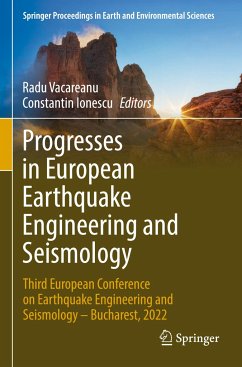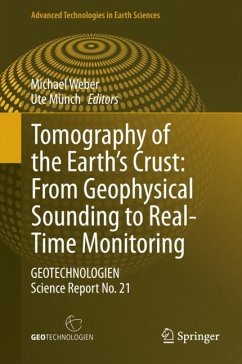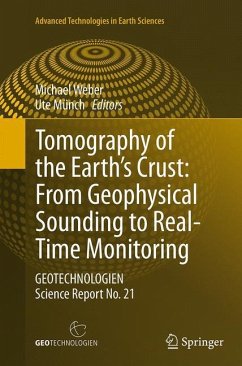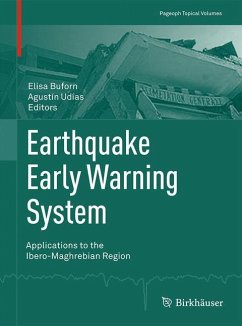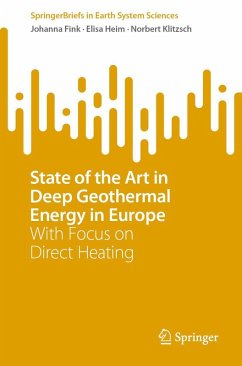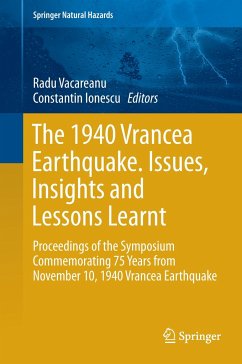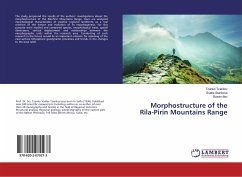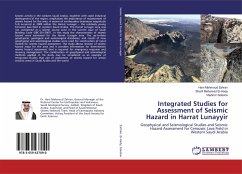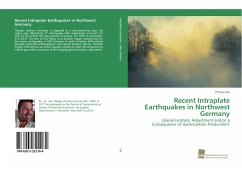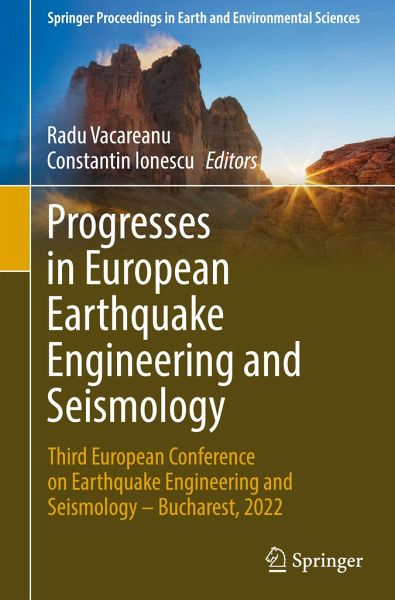
Progresses in European Earthquake Engineering and Seismology
Third European Conference on Earthquake Engineering and Seismology - Bucharest, 2022
Herausgegeben: Vacareanu, Radu; Ionescu, Constantin

PAYBACK Punkte
95 °P sammeln!
This book encompasses the most challenging topics in earthquake engineering and seismology aiming at seismic risk reduction and reveals the outstanding progresses made in Europe in the past four years. Earthquakes pose a significant threat to countries around the world. But, equipped with the right knowledge and tools, engineers and seismologists can support policy and decision makers and building officials in creating a safer future for all of us. In this paradigm, the Third European Conference on Earthquake Engineering and Seismology (3ECEES) is organized in Bucharest (Romania) in September ...
This book encompasses the most challenging topics in earthquake engineering and seismology aiming at seismic risk reduction and reveals the outstanding progresses made in Europe in the past four years. Earthquakes pose a significant threat to countries around the world. But, equipped with the right knowledge and tools, engineers and seismologists can support policy and decision makers and building officials in creating a safer future for all of us. In this paradigm, the Third European Conference on Earthquake Engineering and Seismology (3ECEES) is organized in Bucharest (Romania) in September 2022 by the Romanian Association for Earthquake Engineering, Technical University of Civil Engineering of Bucharest and National Institute for Earth Physics. This outstanding scientific event is the third in a series started in 2006 in Geneva, Switzerland and continued in 2014 in Istanbul, Turkey.
The papers included in this book are written by the most prominent contemporary European scholars in the two-folded fields of 3ECEES. The Distinguished Nicholas Ambraseys, along with 28 invited lectures providing the best knowledge in the fields of earthquake engineering and seismology, are shared with the general readership of this book. The book is organized in three parts, as follows: (1) Seismicity, engineering seismology and seismic hazard, (2) Seismic risk assessment and mitigation, and (3) Structural earthquake engineering. The 29 contributed papers for this book are shared among these three parts almost equally.
Chapter "The Challenge of the Integrated Seismic Strengthening and Environmental Upgrading of Existing Buildings" is available open access under a Creative Commons Attribution 4.0 International License via link.springer.com.
The papers included in this book are written by the most prominent contemporary European scholars in the two-folded fields of 3ECEES. The Distinguished Nicholas Ambraseys, along with 28 invited lectures providing the best knowledge in the fields of earthquake engineering and seismology, are shared with the general readership of this book. The book is organized in three parts, as follows: (1) Seismicity, engineering seismology and seismic hazard, (2) Seismic risk assessment and mitigation, and (3) Structural earthquake engineering. The 29 contributed papers for this book are shared among these three parts almost equally.
Chapter "The Challenge of the Integrated Seismic Strengthening and Environmental Upgrading of Existing Buildings" is available open access under a Creative Commons Attribution 4.0 International License via link.springer.com.





